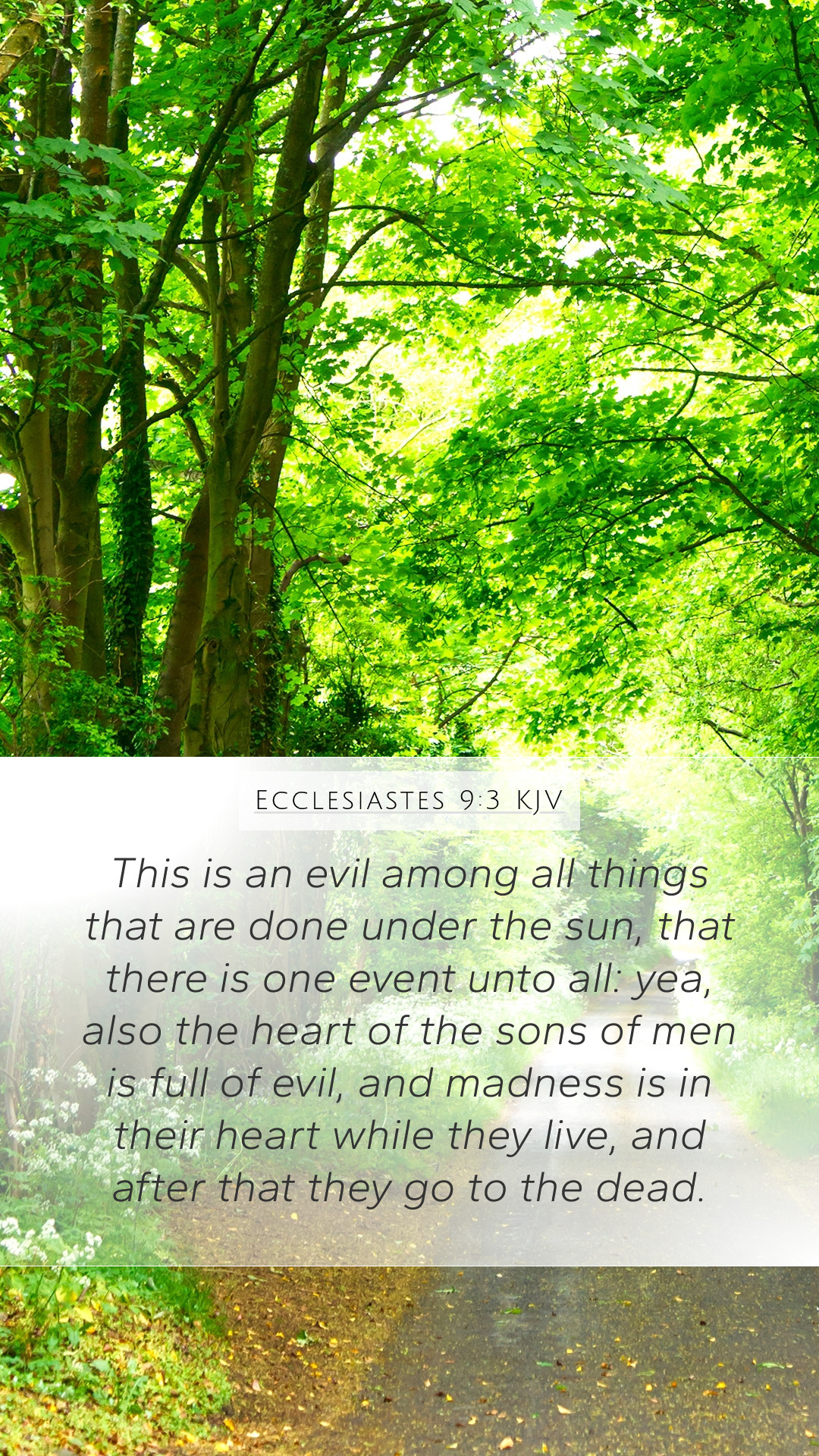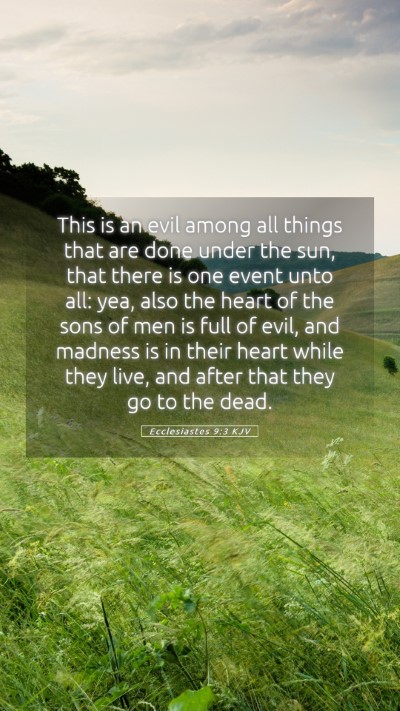Understanding Ecclesiastes 9:3
Ecclesiastes 9:3 states: "This is an evil in all that is done under the sun, that the same event happens to all. Truly, the hearts of the sons of men are full of evil; madness is in their hearts while they live, and after that, they go to the dead."
Bible Verse Meaning
The meaning of this verse can be deeply explored through various biblical commentaries. Here we will summarize insights from noted theologians to provide a more nuanced understanding of its implications.
General Overview
Ecclesiastes reflects on the futility and challenges of life, particularly focusing on the inevitability of death. This particular verse emphasizes the universality of human experiences regarding death and the moral state of humanity.
Insights from Commentaries
-
Matthew Henry's Commentary
Matthew Henry notes that the observation of all events leading to death creates a sense of despair among people. He emphasizes that this condition reflects the evil nature of human hearts which are inclined towards wickedness. The common fate of death serves to remind individuals of their mortality and the futility of their pursuits if detached from the fear of God. By acknowledging that everyone faces the same fate, Henry calls for a sober reflection on life, urging individuals to act in a manner that prepares them for what lies beyond.
-
Albert Barnes' Notes
Albert Barnes elaborates on the phrase "the same event happens to all," indicating that regardless of one's status or righteousness, death is the ultimate equalizer. He suggests that this is a key theme throughout Ecclesiastes, teaching that earthly gains and achievements are temporary. Barnes warns that this uniformity in death serves as a call to ponder on moral conduct and spiritual preparation, as the state of humanity—full of evil and madness—requires divine reflection and repentance.
-
Adam Clarke's Commentary
Adam Clarke provides a more reflective take on the nature of human existence, stating that the madness and evil in human hearts lead to a chaotic existence. He relates this observation to the notion of a life disconnected from divine purpose. Clarke points out that such recognition should lead to enhancing one’s spiritual life and understanding, encouraging believers to seek wisdom and righteousness amidst the chaos that pervades human existence.
Key Themes and Theological Insights
In addition to the individual interpretations above, several theological themes emerge from the verse:
- Universality of Death: The futility of human endeavors in light of death emphasizes the need for a connection with the divine.
- Human Sinfulness: The state of humanity's heart being "full of evil" suggests a call for self-examination and spiritual awakening.
- Madness of Life: The notion that life can be perceived as madness when viewed without a framework of faith points to the necessity of seeking meaning beyond earthly pursuits.
Application to Daily Life
This verse resonates deeply with contemporary believers. Here are some implications for today:
- Recognizing mortality directs us to live more meaningfully, prioritizing relationships and spiritual growth over superficial achievements.
- Understanding the commonality of death can foster a sense of community among believers, united in purpose and hope of eternal life.
- Engaging with the text encourages deeper contemplation of life's purpose and the pursuit of godliness in a world filled with distractions.
Related Bible Cross References
- Romans 5:12 - "Therefore, just as sin came into the world through one man, and death through sin, and so death spread to all men because all sinned."
- Hebrews 9:27 - "And just as it is appointed for man to die once, and after that comes judgment."
- Ecclesiastes 7:2 - "It is better to go to the house of mourning than to go to the house of feasting, for this is the end of all mankind, and the living will lay it to heart."
Conclusion
In conclusion, Ecclesiastes 9:3 serves as a poignant reminder of the human condition and the unifying reality of death, compelling readers to seek deeper wisdom and understanding. The explorations provided by renowned Biblical commentators illuminate essential truths that guide believers in their daily lives and spiritual journeys.


